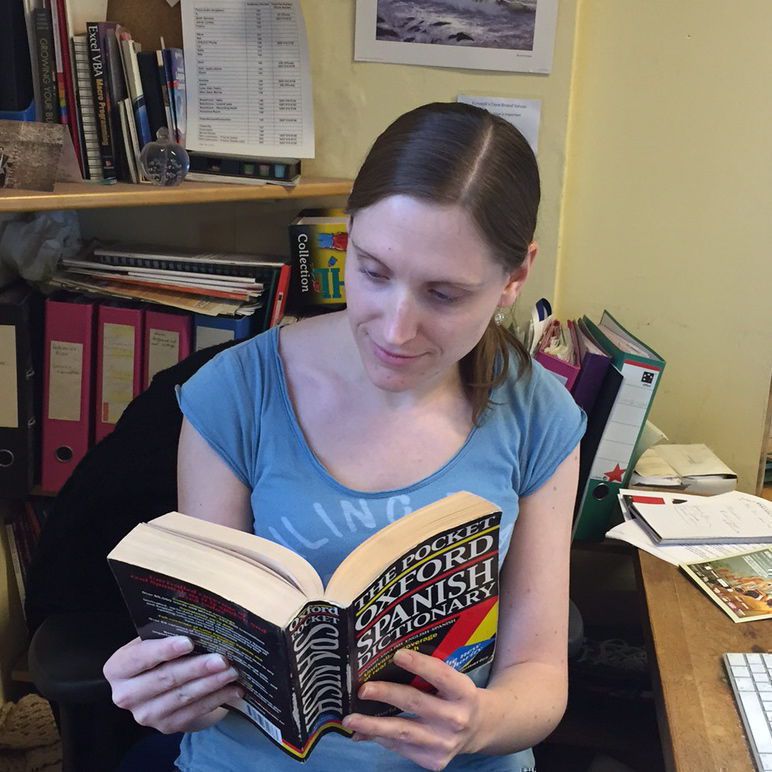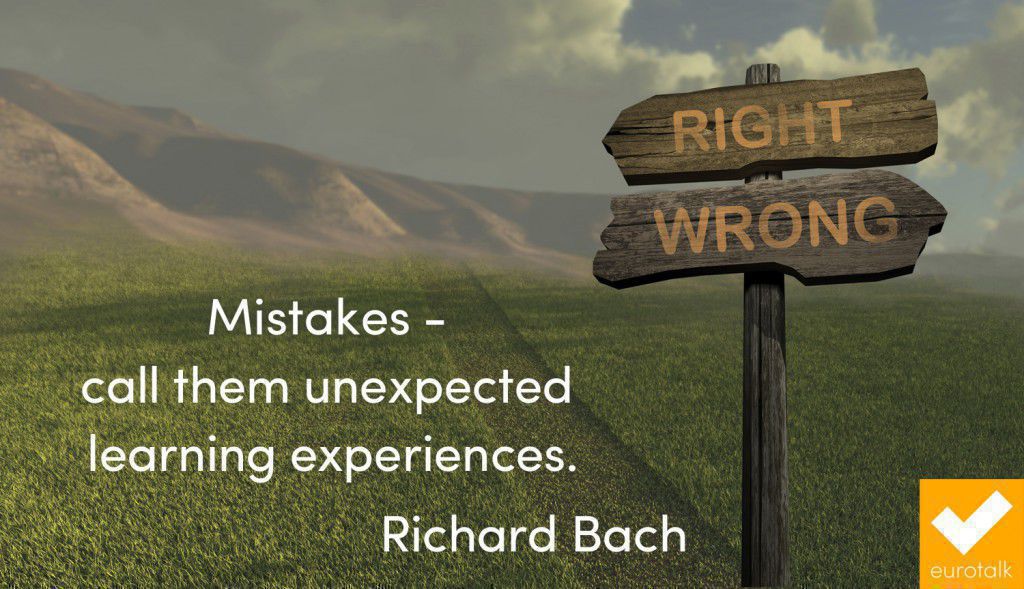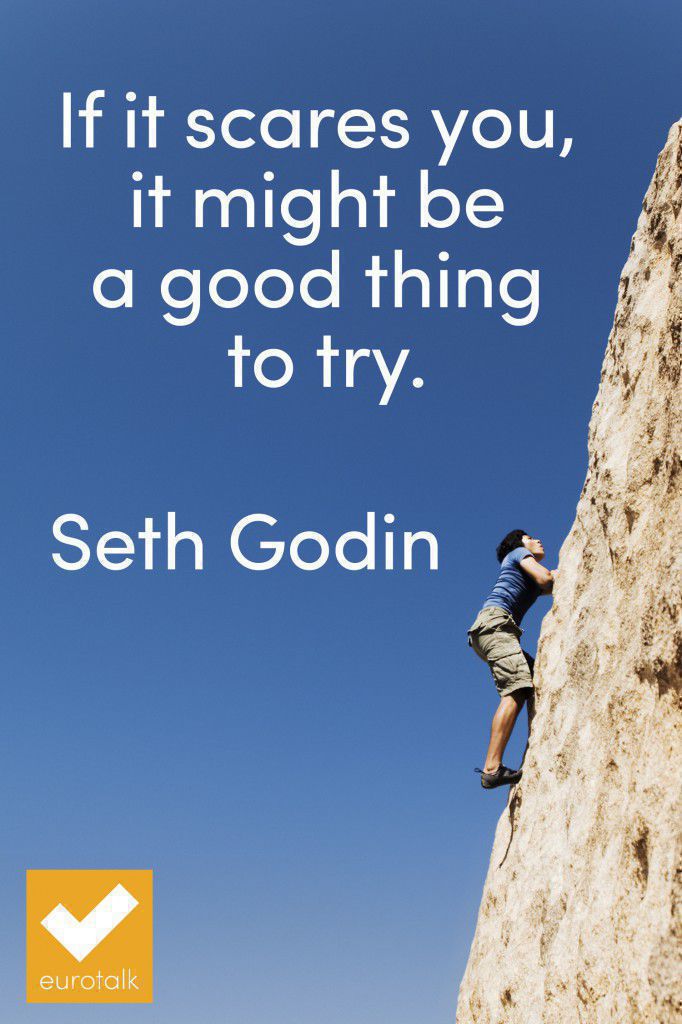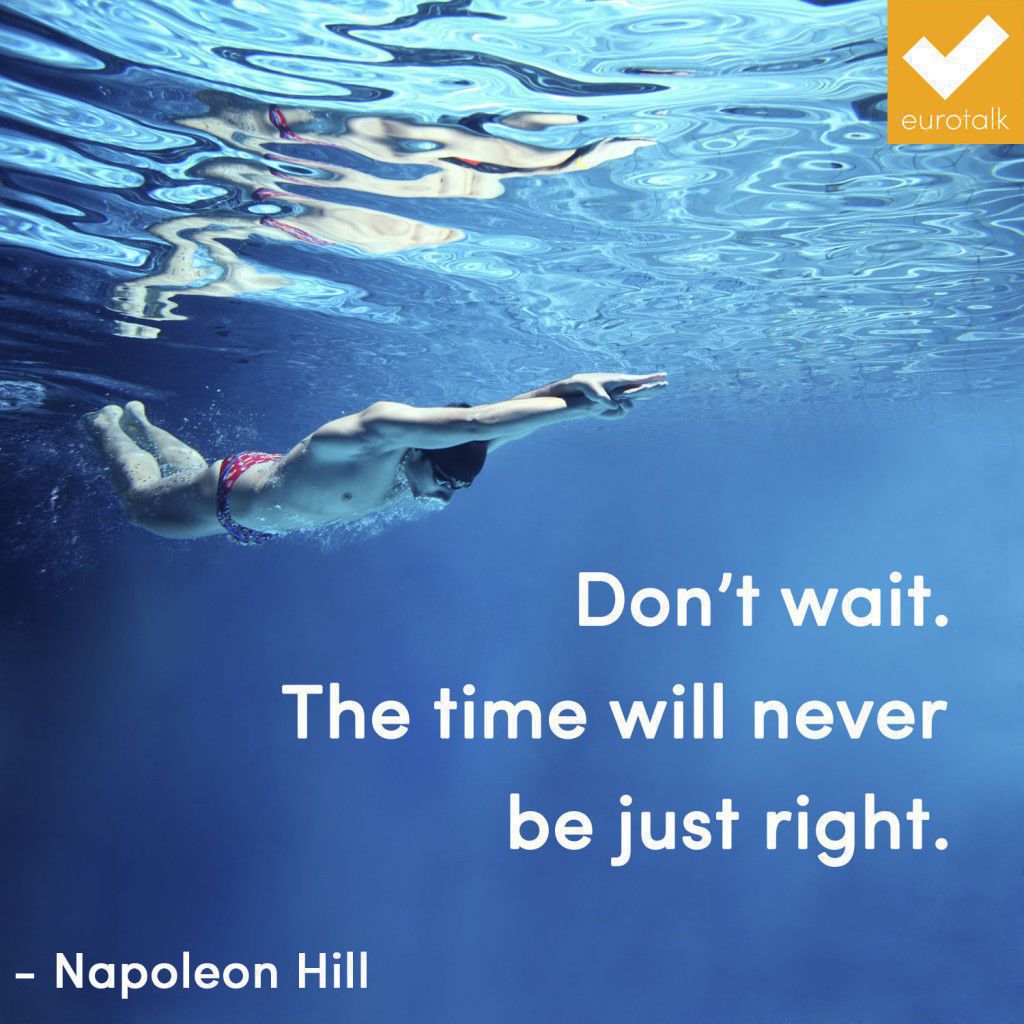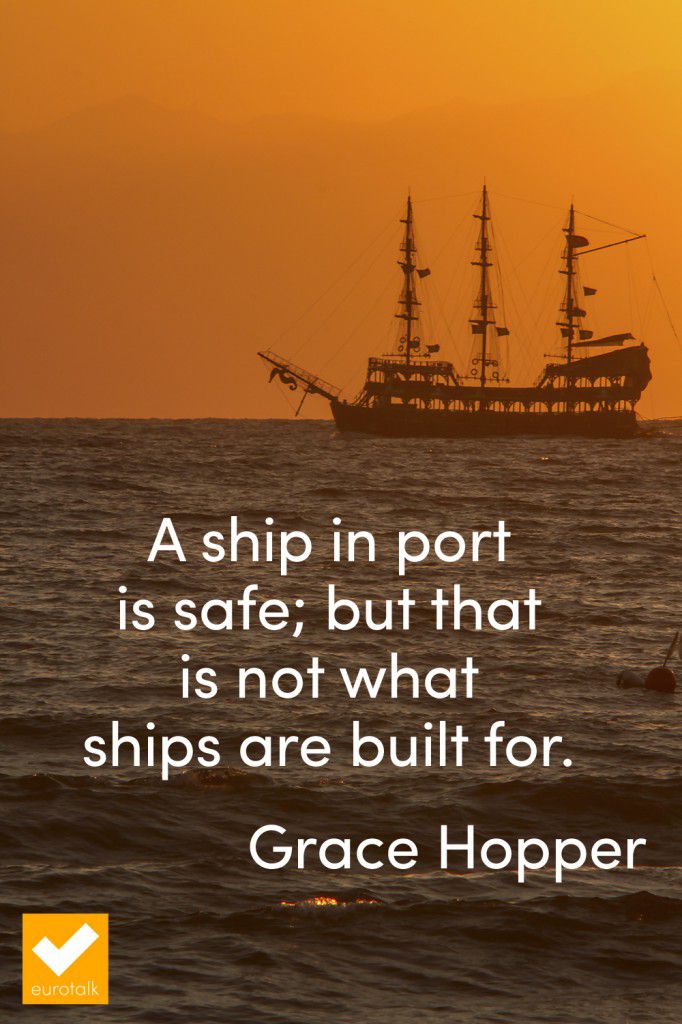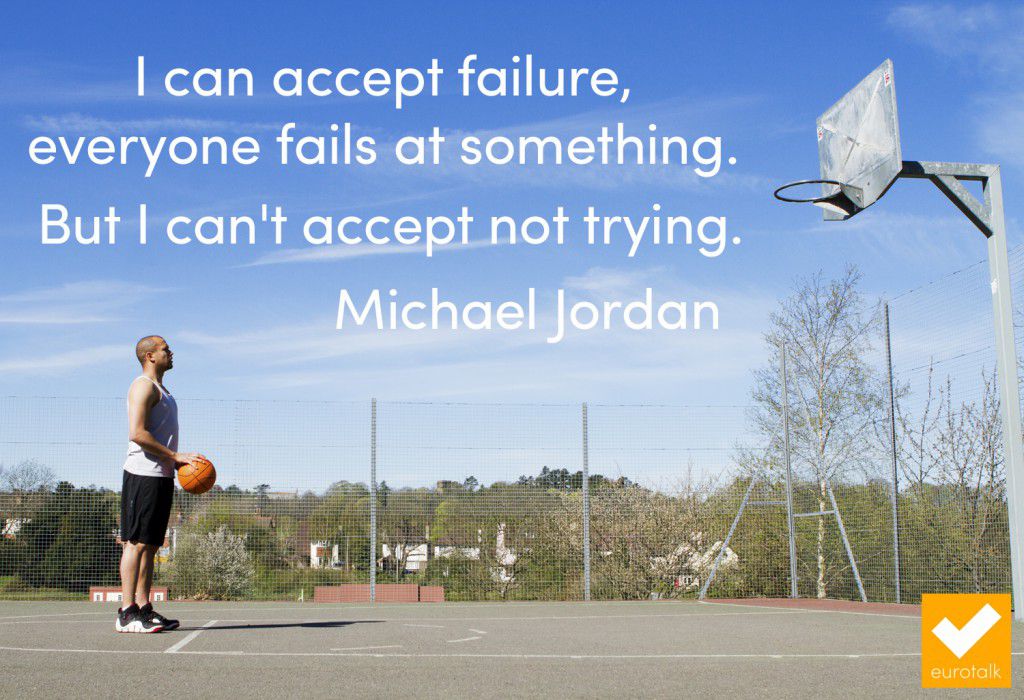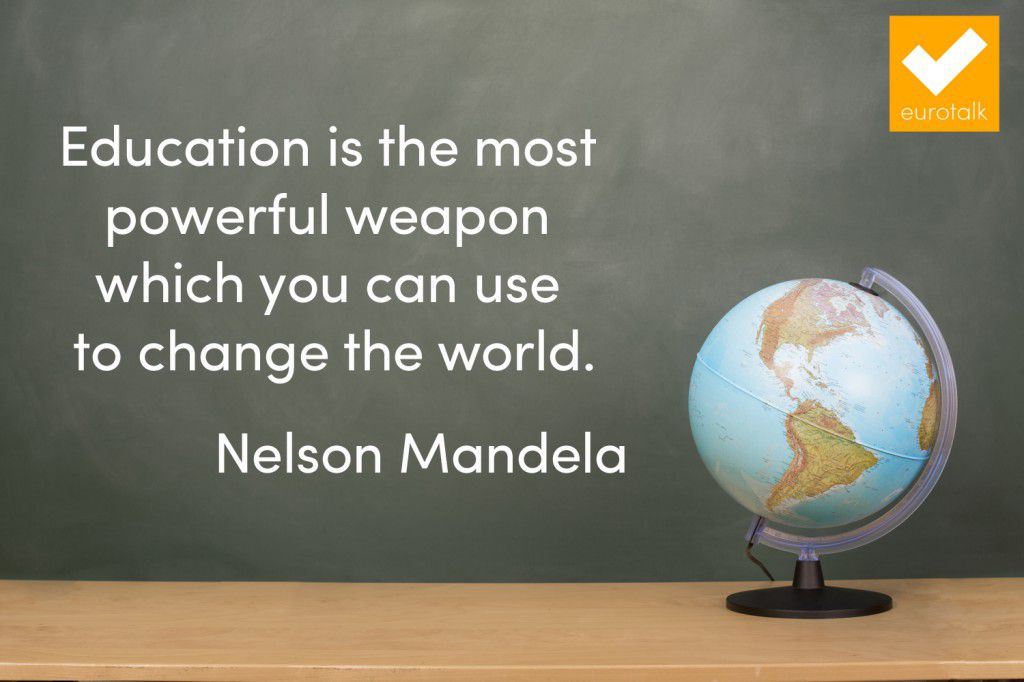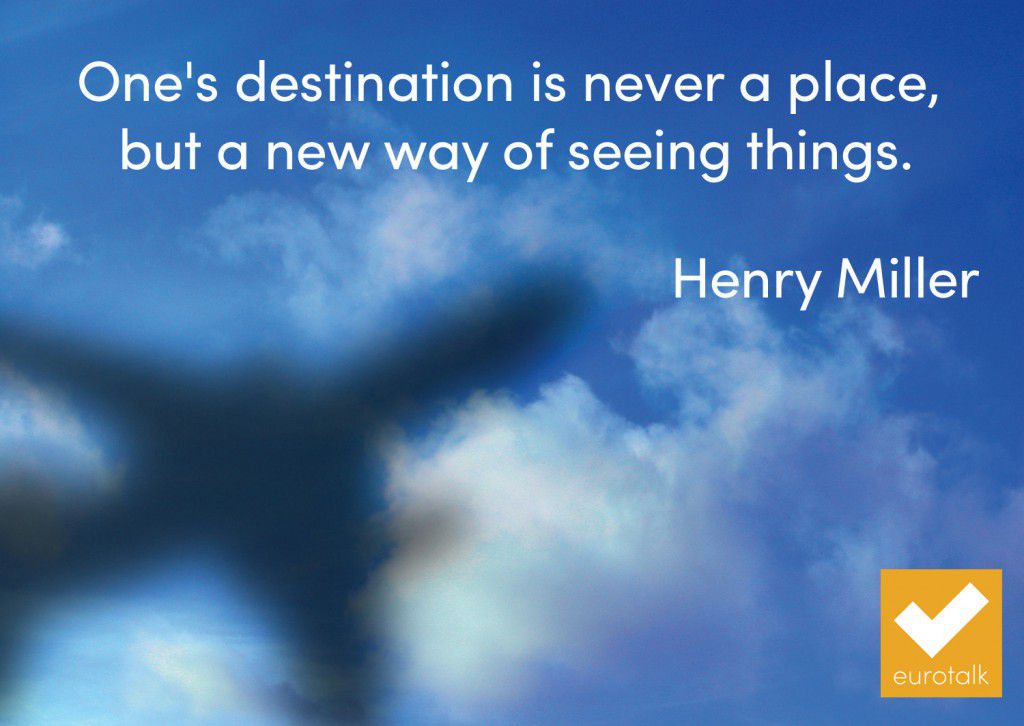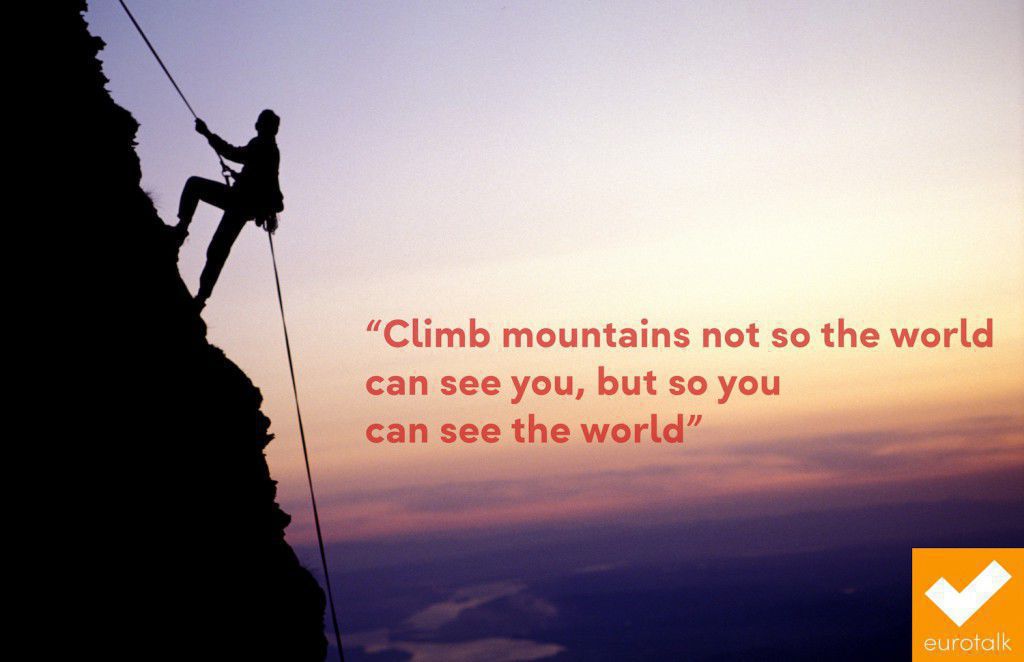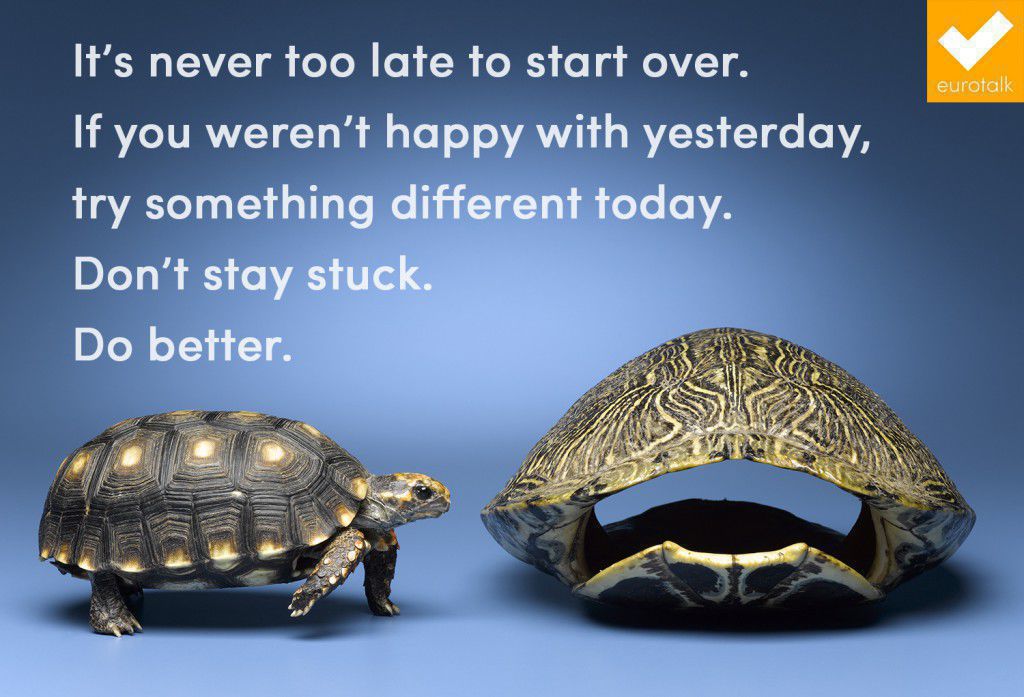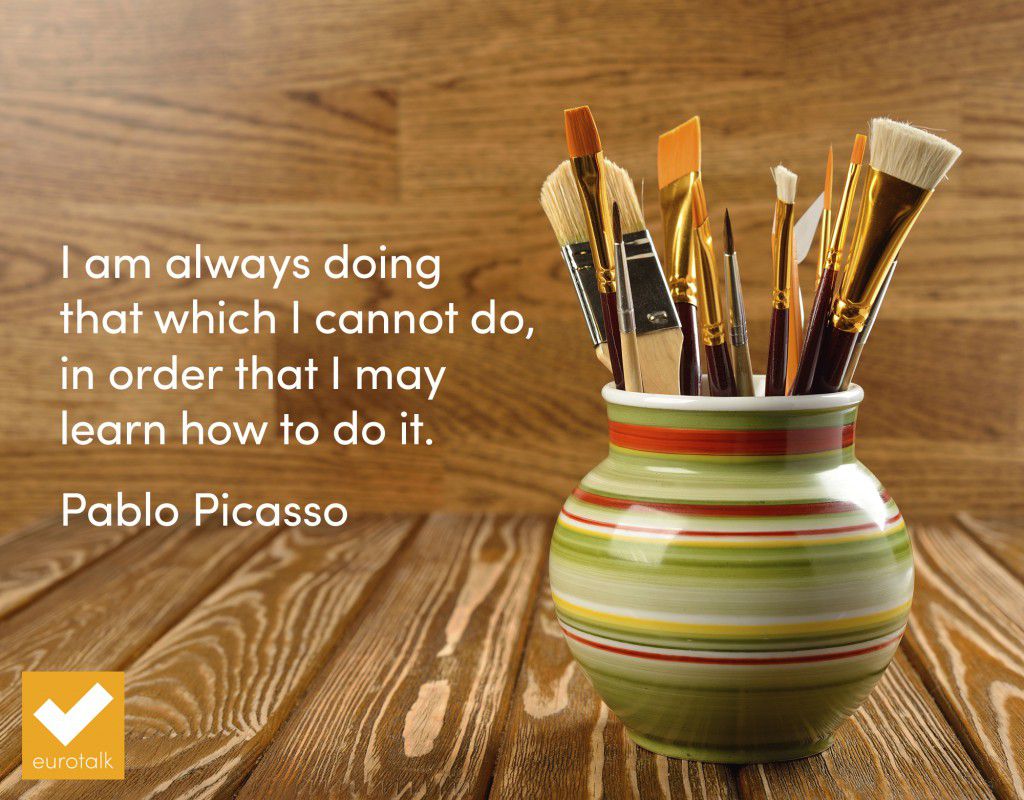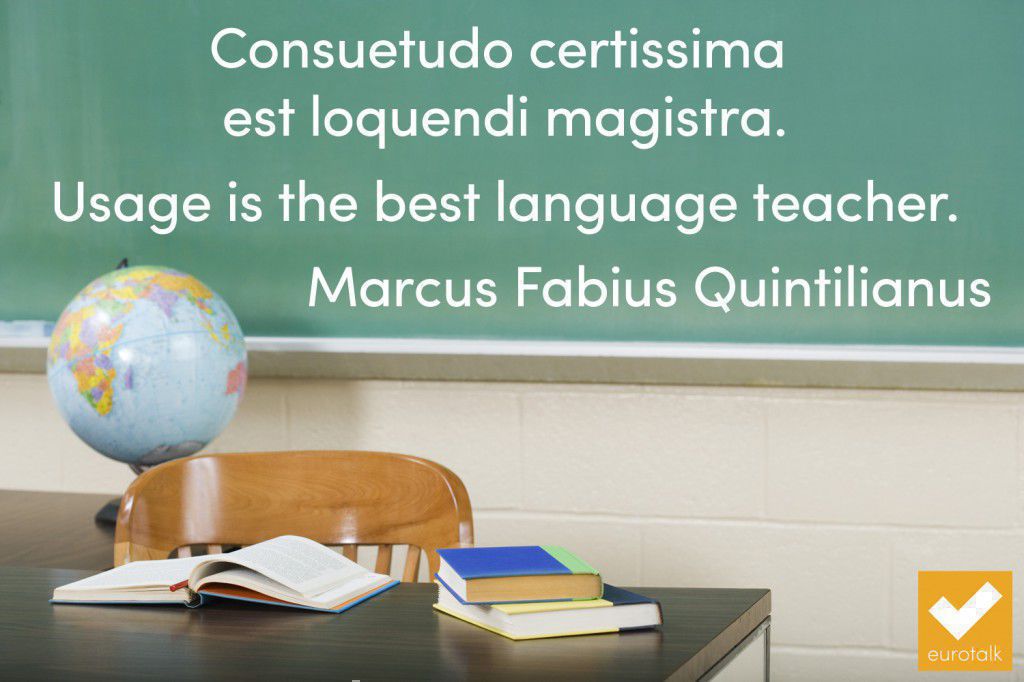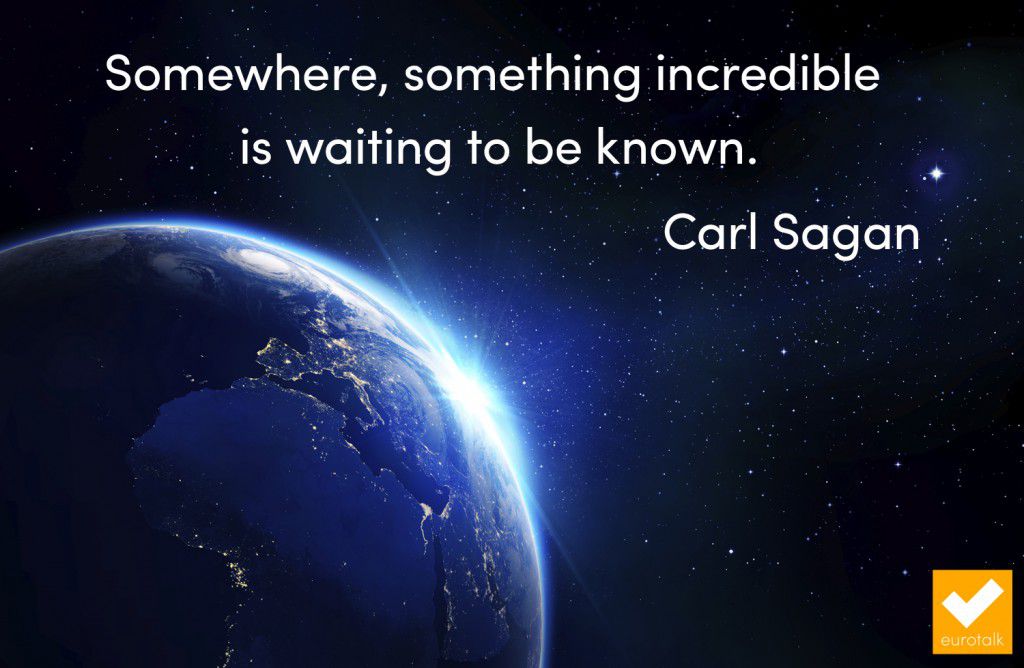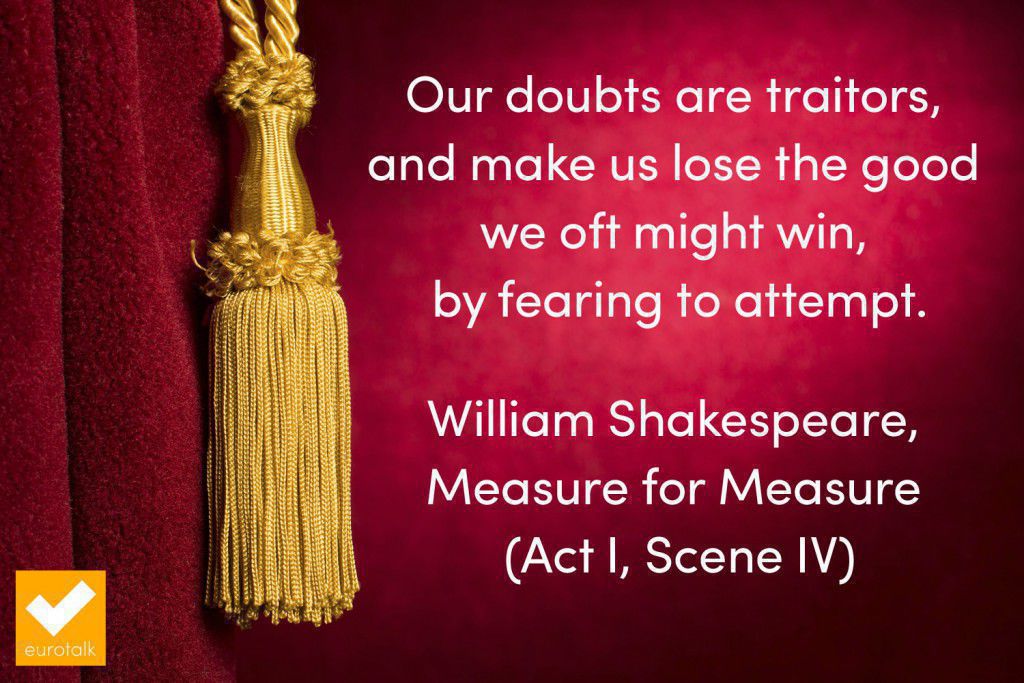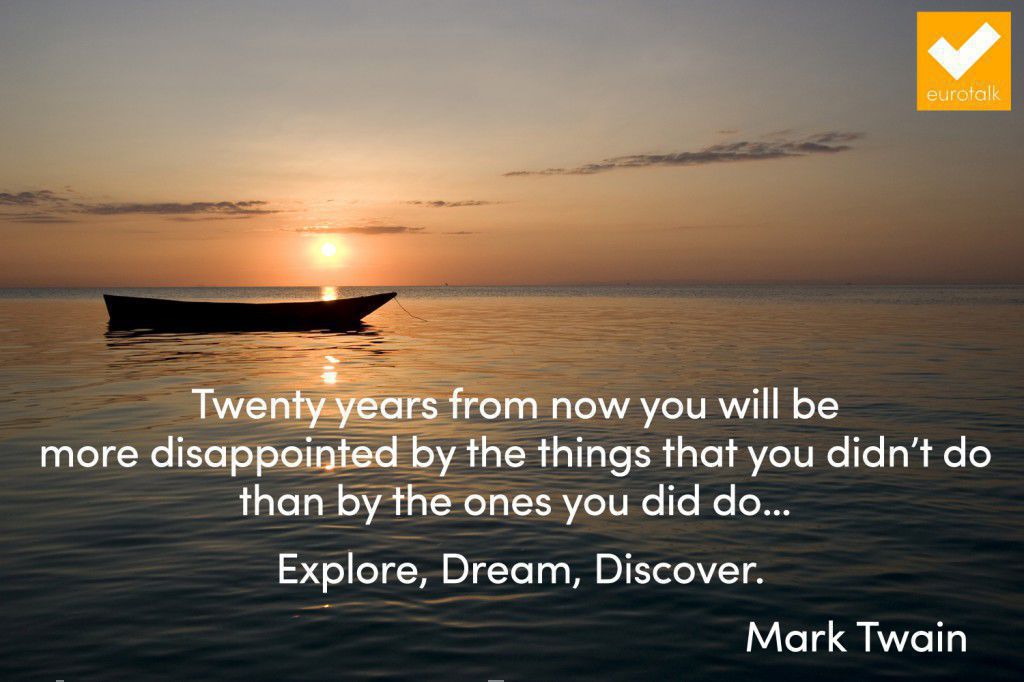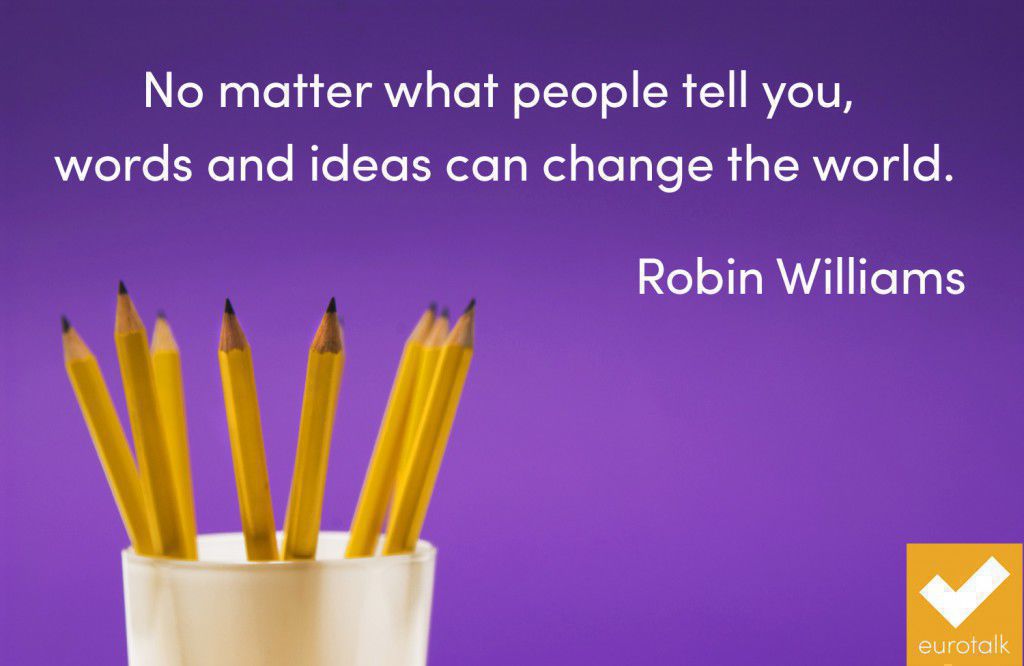Overcoming anxiety when speaking a foreign language in public
Thanks to guest blogger Eve Pearce, who’s written today’s really helpful article about something every language learner has had to deal with at some point – overcoming the fear of actually speaking it. If you have any other top stress-busting tips, we’d love to hear about them in the comments!
Seasoned foreign language teachers will probably tell you that one mark of a successful student in terms of language learning, is ‘openness’, ‘daring’ and sometimes, even ‘cheek’. The more free of self-consciousness and shame a student is, the more likely they are to progress, since one vital part of language learning is using it – having conversation with other speakers, communicating, living the language one is learning.
It is easier said than done for some learners, however, especially those suffering from anxiety. Far from being an exotic condition, anxiety is actually the most common mental condition in the US, the UK and many other countries. The daily stresses and demands of life can invoke our ‘fight or flight’ response, raising our heart and breathing rates and sometimes, even causing debilitating panic attacks.
As a language learner, anxiety may have stopped you in your tracks. It may have made you fear situations and people you do not know well. It can stop you from making many important changes in your life, or from learning a new language and interacting with other students and foreign language speakers. Anxiety can play big tricks on body and mind; excess oxygen levels (produced by breathing too rapidly) can cause muscles to cramp and can cause hyperventilation. Sometimes, the problem is mild but still uncomfortable – for instance, a person may fear having to get up in front of a class and make a speech in another language.
If you are suffering from anxiety, and you feel like it is interfering with your ability to progress as a foreign language learner, try some of the most effective relaxation techniques known to those who have recovered from this condition. Foremost among these techniques is abdominal breathing. It is quite simple – just breathe in a large amount of air through your nose, allowing your abdomen to expand. Keep the breath in for a few seconds then exhale, slowly, through your mouth. Do this various times and you will note that your heart rate drops, even when you are very stressed.
Yoga is another highly successful technique at quelling anxiety and stress, so much so that it is offered at practically every top rehabilitation centre for addiction and for eating disorders. Yoga is such an excellent way to battle anxiety because it can be practised by people of all fitness levels and ages, it is cheap, and also a proven method of lowering stress hormone (cortisol) levels. It involves a connection between body, mind and spirit. Controlled breathing is also used, and various poses (asanas) are performed.
Sometimes, mindful meditation can be practised during a yoga session, yet meditation is also useful on its own to calm stress. If you have anxiety, you should definitely set aside a few moments during the day to meditate. There are numerous free online meditation sessions lasting minutes, as well as meditation and breathing apps for your phone, which you can follow while you are in the car or on the bus to work or school.
If you try these methods out and you do not improve, or your anxiety is very severe, then expert help may be required. A good therapist will be able to help you in a handful of session, by utilizing techniques such as CBT (Cognitive Behavioral Therapy), which aims to help patients identify stress triggers and find positive ways to channel tension.
If you have an upcoming talk in a foreign language and you are worried about what others will think if your delivery isn’t perfect, remember that most speakers make mistakes and even suffer from nerves before they begin. Language isn’t a competition; it is a progression and it pays to keep in mind that even if the worst possible outcome occurs (e.g. you forget your speech or you feel too nervous to speak), the event is not the be-all, end-all of your language learning experience. There will always be another chance, further down the line, to do that exam or speak before an audience.
Through relaxation techniques, breathing and therapy, you soon discover that anxiety is little more than a trick – it is your body’s way of choosing ‘flight’ (escape) when the ‘fight or flight’ response kicks in. By simply breathing for a few minutes until your heart rate settles, you can stop anxiety in its tracks – and begin to view language learning as the enjoyable pursuit it really is.
Eve Pearce
How do you know when you’re fluent in another language?
The other day, in a moment of idle curiosity, I took an online Spanish test. And it went rather well; when I finished, I was told that I was 87% fluent.
This is very funny, because – to my shame – I haven’t spoken Spanish properly for years. And although the test proved that everything I learnt at school and university is still there in my head, I know the next time I do try and have a conversation, I’ll struggle initially to remember the right words and how to construct sentences correctly. And there’ll definitely be a lot of ‘um’ and ‘er’.
Defining yourself as ‘fluent’ or ‘not’ seems like a simple enough task. Personally, I’d define fluency as the moment you’re able to have a conversation in another language without hesitation, just as you would in your own native language.
But is that setting too high a standard for myself? Surely what I’ve just described is one step on – what we would call native level?
So, I asked a few other EuroTalkers how they define fluency. A couple of responses were very much like mine:
“When you’re able to have a conversation (spoken or written) without making mistakes, without having to pause to think about words and grammar and without referring to a dictionary or other ‘cheat-sheets’. Be able to use the more complex features of a language with ease (e.g. conditionals, obscure tenses).”
“Speaking another language without having to think about it.”
While a couple were willing to be a bit more flexible:
“When you have enough of the language to get through a visit to the country, you can understand a local and they can understand you back when you speak their language.”
“I think minor mistakes are permitted as long as the other one understands you.”
And another one came at the question from an angle I’d never considered:
“You’re able to have any conversation about general knowledge, not specific fields like medicine, for example.”
But there was one thing all the answers seemed to have in common: the key to fluency is confidence, whether you know all the words or not. And that’s why I can’t think of myself as 87% fluent in Spanish; yes, I understand how the subjunctive works, and perhaps I’d even say that I can read the language fluently – but that doesn’t mean I can confidently have a conversation with someone about the weather.
What do you think ‘fluent’ means? Are you fluent in any other languages?
Liz
Top 10 tips for learning a language
We originally published this infographic back at the start of last year as ‘top 10 tips for learning a language in 2014‘. But if there’s one thing we know, it’s that learning a language is something you can do anytime, anywhere.
So here are our top 10 tips for learning a language – whenever you want!
If anyone has any more top tips that work really well for you, please share them in the comments. Thank you 🙂
More inspiring quotes for language learners
We love languages, and we love helping you to learn them. But we also know it’s not always easy – life has a way of throwing obstacles in your path, and then even when you’ve found time to learn, it can be scary the first time you go to use your new language skills.
So if you’re feeling in need of some motivation, here are a few more of our favourite quotes. If you’d like to share any of them, please do – and if you’ve got a quote you personally find helpful or inspiring, please let us know in the comments.
Happy learning!
8 ways to feel confident about speaking a language
So you’re off on holiday, and you’ve decided you’re going to speak a bit of the local language. You get a EuroTalk program (obviously), start learning a few key phrases, and you’re feeling good.
But then you get off the plane and the doubts start to creep in. What if people laugh at your accent? What if you say what you need to say perfectly, but don’t understand the reply? What if you open your mouth and instantly forget everything you’ve learnt?! Probably safer to stick to English, or sign language. Right?
 It is scary starting to speak another language. I get incredibly nervous – more so, ironically, with Spanish, which is a language I studied for years but haven’t spoken properly for a while. But sometimes you just have to throw yourself into it and see what happens. The worst that’s going to happen is that you don’t understand each other, but the reality is nobody’s going to laugh at you for trying to speak their language, or blame you if you make a mistake.
It is scary starting to speak another language. I get incredibly nervous – more so, ironically, with Spanish, which is a language I studied for years but haven’t spoken properly for a while. But sometimes you just have to throw yourself into it and see what happens. The worst that’s going to happen is that you don’t understand each other, but the reality is nobody’s going to laugh at you for trying to speak their language, or blame you if you make a mistake.
Now, obviously I realise ‘just throw yourself into it’ is a lot easier said than done. So here are some tips to help your confidence, before and during your conversation.
Go prepared
Bit of an obvious one, but you should try and learn at least a few words, so that you’re not going in to the conversation completely unprepared. At least that way you start off in control. It’s probably a good idea to learn how to say ‘I don’t understand’ and ‘please speak more slowly’ as well; at least that way if you do get stuck you’ll be able to do something other than stare blankly.
Find a language partner to chat to before you go
Learning on the computer or your phone is great for learning vocabulary and perfecting your accent, but at the end of the day, learning a language is obviously about conversation. If you’ve got a friend who speaks the language you’re learning, or is learning as well, set aside some time regularly to chat with them. It’ll be easier with someone you know and feel comfortable with than with a stranger, as you won’t be so worried about making mistakes.
Take uTalk with you
Because if your mind goes blank, you can grab your phone and search for the word you need in seconds. uTalk is much quicker (and better-looking) than a phrasebook, and it tells you how to say the word as well. Bonus.
Ban yourself from speaking your own language
I recently discovered Scott Young’s blog; he and a friend just spent a year travelling around four different countries, attempting to speak no English and immerse themselves completely in the local language and culture. This might seem quite drastic, but I can’t think of a better way to feel confident quickly – given a choice between speaking to people in another language or not speaking to anyone at all for three months, I know which one I’d choose.
Try thinking in the language
I’ve tried this approach before in Spanish and found it quite effective. When you look around your house, try and think what the objects are called in the language you’re learning, rather than English. (FlashSticks are useful for this sort of thing.) Try and think about a TV show you just watched, and explain it to yourself in the other language. Go outside and try to name as many everyday sights as you can. This way, it starts to feel like second nature and you may be surprised to find yourself doing it without trying.
Focus on how good you’ll feel afterwards
Have you ever had a conversation in another language? Remember how good you felt afterwards, when you were holding the train ticket you’d just bought, or eating the meal you’d just ordered? Any time you feel hesitant about starting a conversation, focus on that feeling and push on through. It’ll be worth it.
Make a phone call (a.k.a. jump in the deep end)
When I was at university, I spent my third year living in Madrid, and during my first few days I had to make lots of phone calls to try and find somewhere to live. And it was terrifying. I’m not really a fan of the phone at the best of times, but making calls in another language was twice as scary – without the aid of body language or facial expressions, it suddenly becomes a lot harder to understand what someone’s saying to you. But I did it, because I had to, and managed to successfully arrange several viewings; I’d never have thought I could do that before I left home.
And, if all else fails…
Have a drink
It’s a well-documented fact – mostly among students, for some reason – that having a drink or two actually improves your language skills. While that may not be entirely true, it does make sense that when you’re feeling relaxed, and your inhibitions are lowered, you’re going to feel more confident about giving it a go. Don’t have too many drinks though, obviously, or then nobody will understand you in any language.
Good luck!
Do you struggle with confidence when you’re speaking another language? How do you deal with it?
Liz

